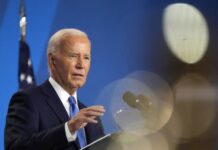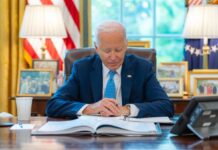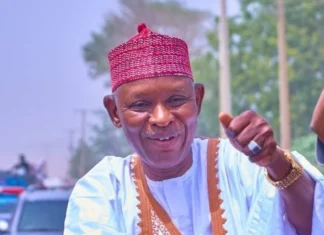John Lewis, who went from being the youngest leader of the 1963 March on Washington to a long-serving congressman from Georgia and icon of the civil rights movement, died Friday. He was 80.
In December 2019, he was diagnosed with pancreatic cancer.
As a leader of the Student Nonviolent Coordinating Committee, Lewis was a committed participant in some of the key moments of the movement — an original Freedom Rider in 1961, a principal speaker at the March on Washington in 1963, one of those brutally clubbed during a 1965 march in Selma, Ala. Through it all, he faced taunts, beatings and dozens of arrests.
“In the face of what John considered the evils of segregation, he was fearless,” said longtime SNCC activist Courtland Cox.
By his middle years, he was in Congress and sometimes referred to it as its “conscience.” Years later, he was a witness to the inauguration of Barack Obama, the first African American president.
“Generations from now,” Obama said when awarding him a Medal of Freedom in 2011, “when parents teach their children what is meant by courage, the story of John Lewis will come to mind — an American who knew that change could not wait for some other person or some other time; whose life is a lesson in the fierce urgency of now.”
In 2017, he came under attack from Obama’s successor, Donald Trump. “All talk, talk, talk — no action or results,” Trump tweeted of Lewis as the two traded insults. Lewis subsequently invoked Trump to encourage his admirers: “Do not get lost in a sea of despair,” he tweeted in June 2018. “Be hopeful, be optimistic. Our struggle is not the struggle of a day, a week, a month, or a year, it is the struggle of a lifetime. Never, ever be afraid to make some noise and get in good trouble, necessary trouble.”
Through it all, the son of the deeply segregated Deep South had an outsize impact on public life.
“What we found, as we pushed our protests deeper into the heart of segregated society, was that our nonviolent actions were met with increasingly more violent responses.”











